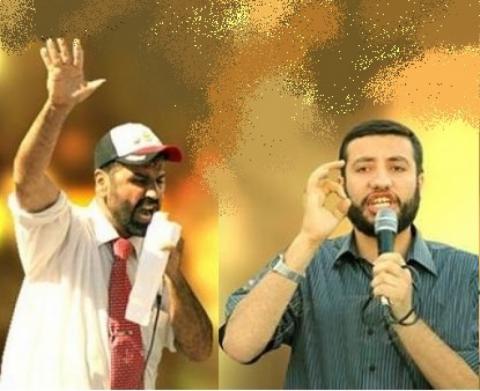
On 27 May 2015, the same day that he was charged with "criticising or insulting the King" for taking part in a peaceful demonstration against Charlie Hebdo's front-page cartoon and subsequently sentenced to five months imprisonment, the social rights activist Bassem Al Rawabedah was released. Arrested in January 2015 – two days after the arrest of Thabet Assaf, another member of the Islamic Jordanian Youth Movement, a group advocating for social and political reforms – Al Rawabedah had been transferred to the General Intelligence Services together with Assaf where they were detained incommunicado in solitary confinement for two weeks. Both were then tried before the State Security Court, a special court used to try the military, and Assaf was released on bail the day of his sentencing to three months in prison on 26 March 2015. Today, notwithstanding the two activists' releases, Alkarama still calls on the United Nations Working Group on Arbitrary Detention (WGAD) to denounce their abusive and arbitrary detention.
The facts
27-year-old Assaf, spokesman of the Jordanian Youth movement, and 45-year-old owner of a local supermarket, Al Rawabedah were both arrested in Amman, respectively on 15 and 17 January 2015, by the Preventive Security Services, a force under the control of the Public Security Directorate which subsequently handed them over to the General Intelligence Services. Transferred to the General Intelligence Directorate headquarters in Amman, they were held in solitary confinement and prevented from receiving the visit of their family or lawyers, putting them in a situation of incommunicado detention for over a week.
Worried that they might be sentenced under the 2006 anti-terrorism law or charged for "incitement against the political system", on 23 January 2013, Alkarama had sent an urgent appeal to the Special Rapporteur on the rights to freedom of peaceful assembly and of association (SR FPAA), Maina Kiai, asking him to urgently call upon the Jordanian authorities to immediately release the two activists.
Denied legal assistance during their interrogation at the General Intelligence Directorate, the two men were then tried before the State Security Court – essentially a military court that is notorious for its disrespect of the right to a fair trial – and accused by the Prosecutor of "incitement against the political regime" on the basis of article 149 of the Penal Code, a charge increasingly used against activists by the Jordanian authorities. Concerned by the trial of the activists by this special court made of two military and a civilian judge all appointed by the Prime Minister, and which is known for the little respect it has for fair trial procedures, Alkarama had then sent a request for an Opinion to the Working Group on Arbitrary Detention (WGAD) as to the arbitrary nature of their detention on 24 April 2015.
A month later, the Special Security Court changed Al Rawabedah and Assaf's charge into "insulting the King" – a crime according to article 195 of the Jordanian Penal Code – and sentenced Al Rawabedah to five months of imprisonment on 6 May 2015, and Assaf to three months of imprisonment on 27 May 2015. Both men were released after having served their respective sentences: Al Rawabedah was released the day of his sentencing, while Assaf had been released on bail on 26 March 2015.
Alkarama's call for a UN Opinion
Notwithstanding their release, on 3 June 2015 Alkarama wrote again to the WGAD to request it to issue an Opinion on Al Rawabedah and Assaf's arbitrary detention. International recognition of the wrongfulness of their detention would, not only officially acknowledge the severe arbitrary treatment faced by the victims themselves and serve, in the future, as an advocacy tool by for all those who work for the respect of human rights in the country, but also and most importantly it would send a clear message to the Jordanian authorities that they must put an end to the use of arbitrary detention to silence any form of political dissent.
"Jordan must stop using the State Security Court to try civilians for participating in peaceful protests and from resorting to the misinterpretation of broad provisions in national law to silence critical voices," explains Inès Osman, Regional Legal Officer for the Mashreq and Coordinator of the Legal Department at Alkarama. As a party to the International Covenant and Civil and Political Rights (ICCPR) since March 1975, Jordan has an obligation to respect freedom of expression, association and assembly at all times.
For more information or an interview, please contact the media team at media@alkarama.org (Dir: +41 22 734 1008)
